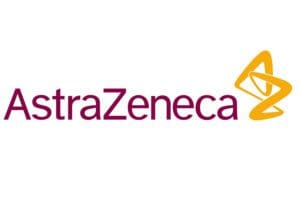 AstraZeneca announced today that its COVID-19 vaccine demonstrated statistically significant efficacy in preventing COVID-19 in a U.S. trial.
AstraZeneca announced today that its COVID-19 vaccine demonstrated statistically significant efficacy in preventing COVID-19 in a U.S. trial.
AZD1222, developed in a collaboration between London-based AstraZeneca and Oxford University, was 79% effective in preventing symptomatic COVID-19 and 100% effective in preventing severe disease and hospitalization, according to a news release. Efficacy was consistent across ethnicity and age, with participants aged 65 and older experiencing an effectiveness of 80%.
The two-dose vaccine is administered at a four-week interval. It can be stored, transported and handled at normal refrigerated conditions (2-8 degrees Celsius or 36-46 degrees Fahrenheit) for at least six months and can be administered without the need for preparation within existing healthcare settings.
“These findings reconfirm previous results observed in AZD1222 trials across all adult populations but it’s exciting to see similar efficacy results in people over 65 for the first time,” University of Rochester School of Medicine professor & co-lead principal trial investigator Dr. Ann Falsey said in the release. “This analysis validates the AstraZeneca COVID-19 vaccine as a much-needed additional vaccination option, offering confidence that adults of all ages can benefit from protection against the virus.”
Interim safety and efficacy data was based on a trial of 32,449 patients accruing 141 symptomatic cases of COVID-19. The trial was randomized (2:1) with vaccine and placebo. AstraZeneca said the vaccine was well-tolerated and no safety concerns were identified related to the vaccine, which could have been a concern after a number of European countries where the vaccine is already authorized paused use after reports of potentially related blood clots. European medical authorities have since determined that there is little connection between the vaccine and blood clots, but noted that “the vaccine may be associated with very rare cases of blood clots associated with thrombocytopenia, i.e. low levels of blood platelets.”
The independent data safety monitoring board identified zero safety concerns after a specific review of thrombotic events, as well as cerebral venous sinus thrombosis with the assistance of an independent neurologist. The DSMB found no increased risk of thrombosis or events characterized by thrombosis among the 21,583 patients who received at least one dose of the vaccine.
AstraZeneca said it will continue to analyze data and prepare for the analysis to be submitted to the FDA for emergency use authorization (EUA) in the coming weeks. If approved, it would become the fourth vaccine given authorization in the U.S., following those from Moderna, Pfizer and Johnson & Johnson.
“These results add to the growing body of evidence that shows this vaccine is well tolerated and highly effective against all severities of COVID-19 and across all age groups,” AstraZeneca EVP of biopharmaceuticals R&D Mene Pangalos said. “We are confident this vaccine can play an important role in protecting millions of people worldwide against this lethal virus.
“We are preparing to submit these findings to the U.S. Food and Drug Administration and for the rollout of millions of doses across America should the vaccine be granted U.S. Emergency Use Authorization.”
Filed Under: clinical trials, Drug Discovery, Drug Discovery and Development, Infectious Disease





Tell Us What You Think!
You must be logged in to post a comment.